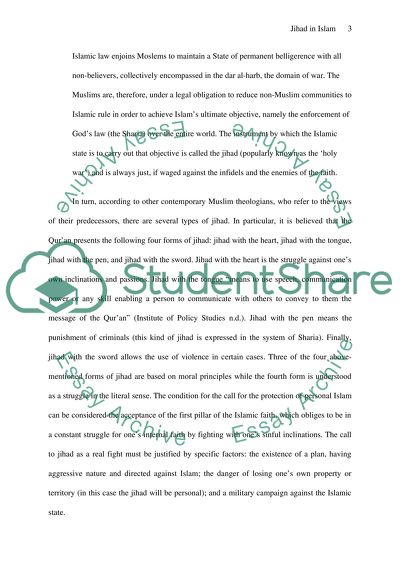Cite this document
(“Jihad in Islam Essay Example | Topics and Well Written Essays - 3750 words”, n.d.)
Retrieved from https://studentshare.org/religion-and-theology/1698962-jihad-in-islam
Retrieved from https://studentshare.org/religion-and-theology/1698962-jihad-in-islam
(Jihad in Islam Essay Example | Topics and Well Written Essays - 3750 Words)
https://studentshare.org/religion-and-theology/1698962-jihad-in-islam.
https://studentshare.org/religion-and-theology/1698962-jihad-in-islam.
“Jihad in Islam Essay Example | Topics and Well Written Essays - 3750 Words”, n.d. https://studentshare.org/religion-and-theology/1698962-jihad-in-islam.


